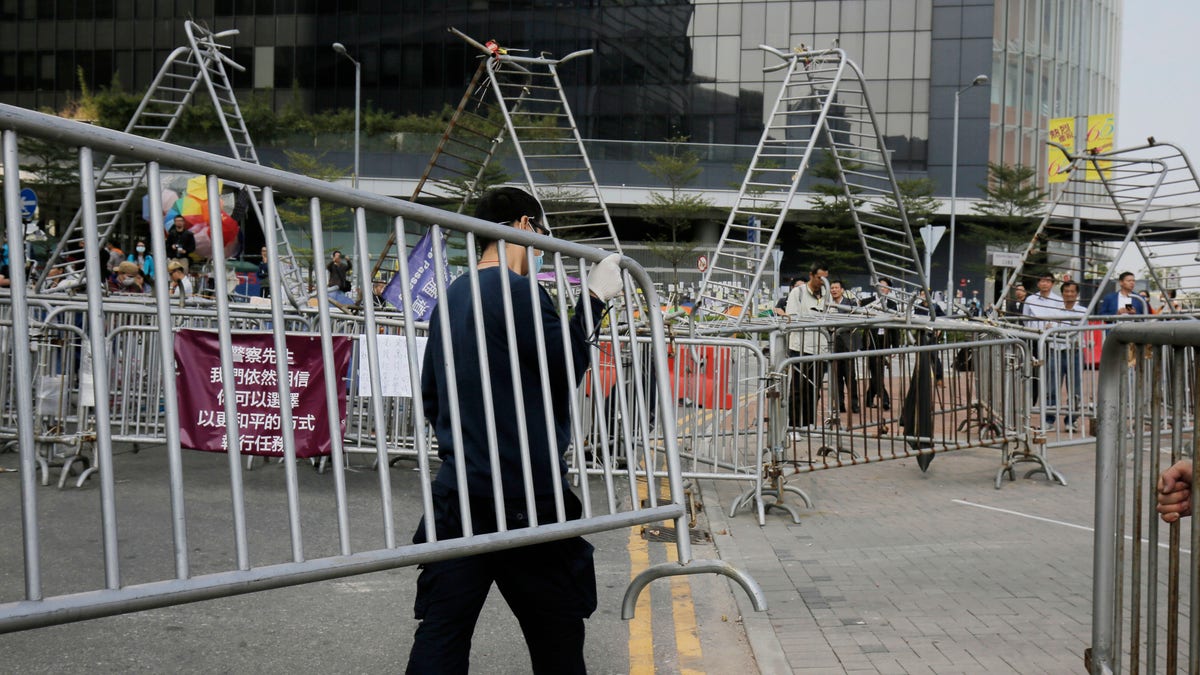
Nov. 18, 2014: A pro-democracy protester removes barricades from an occupied area outside government headquarters in Hong Kong's Admiralty district (AP)
HONG KONG – Workers in Hong Kong on Tuesday started clearing away barricades at one site of the student protest that has rocked the city for the last two months.
The removal comes after a Hong Kong court granted a restraining order against the protesters last week requiring them to clear the area in front of a tower in the central part of Hong Kong as well a separate order against a second protest site Mong Kok brought by taxi and minibus operators.
The workers could be seen cutting plastic ties holding the barricades together. Students, who have been protesting for greater democracy in the former British colony, did not resist. Some protesters had already moved their tents to other parts of the protest zone ahead of the clearance operation.
The protesters oppose Beijing's decision that a panel will screen candidates for the inaugural 2017 election for Hong Kong's top official. Chinese authorities have declared the gatherings illegal.
It is not known what the students, who occupy several sites around Hong Kong, plan to do next.
On Saturday, three students who have led protests for greater democracy in the former British colony were turned back in their attempt to go to Beijing to meet with top Chinese officials.
Alex Chow, Nathan Law and Eason Chung — members of a student group that played a main role in organizing massive street protests that started nearly two months ago were denied boarding passes for a Cathay Pacific flight when they were told their documents that would allow them to travel to Beijing were invalid.
In a news conference hours later, the student leaders said annulling their travel documents is an unreasonable move that deprives them of their rights to enter the country's territory.
Carrie Lam, chief secretary for the Hong Kong administration, said that it was unnecessary for the students to petition Beijing and that the central leadership of the ruling Communist Party was aware of their appeals.
Pro-democracy lawmakers in Hong Kong are routinely denied entry to the mainland, and Beijing in the past has confiscated or refused to renew the travel permits commonly known as return-home cards for a number of Hong Kong activists.
The protesters oppose Beijing's decision that a panel will screen candidates for the inaugural 2017 election for Hong Kong's top official. Chinese authorities have declared the gatherings illegal.
